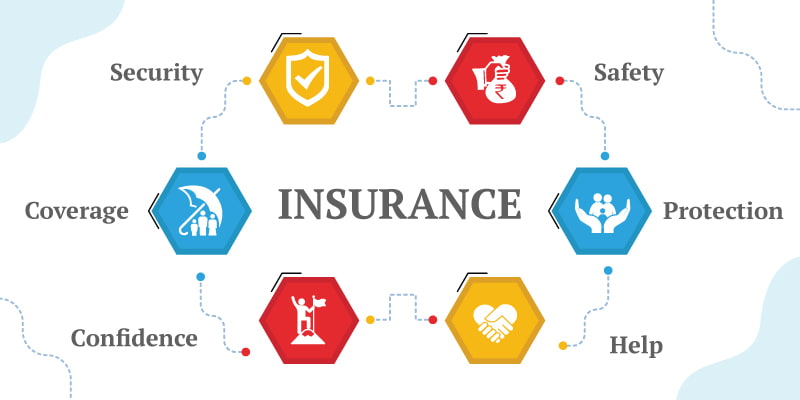No matter the size of your company, it’s always at risk of accidents and natural disasters. This is why it’s essential to have business insurance in place. Business owners put their heart and soul into building their enterprises, but the unexpected can wipe out these efforts. Business insurance is a safety net that provides a sense of security and stability.
Coverage for Unexpected Events
Business owners know that one expensive lawsuit or unexpected disaster can wipe out their financial resources. Even the most successful companies can be vulnerable to these risks. That’s why a business insurance plan is essential. A business insurance policy transfers some risk from a company to an insurer in exchange for regular premium payments.
Business insurance can cover property damage, loss of income, liability claims, etc. It is often bundled into one comprehensive package called a business owner’s policy (BOP). The right business insurance is essential to any company’s risk management strategy. It shows clients and customers that the company is professional and responsible and may help negotiate contracts or secure new projects.
A business insurance agent can help a company assess its needs and determine the best policies. It’s a good idea to re-assess a business’s coverage requirements annually. This is especially true if the business experiences growth or changes in its operations. The agent can recommend specialized coverage to address the most pressing risks.
Coverage for Interruptions
Although most business insurance policies cover physical damage, a few offer extra protections, like business interruption insurance (BI). This coverage compensates small businesses for income loss while closed or shut down due to a covered disaster.
BI costs vary by policy limits, premiums, and industry risks. Generally, BI policies have a period of restoration that defines how long your business is eligible for reimbursement. Most also have requirements that must be met to trigger coverage, such as a specific loss like direct physical property damage.
Many BI policies offer several optional endorsements that add extra protections like civil authority, which pays for damages caused by government orders that close your company.Others may include the cost of a temporary location for your company, while others include renovations or new construction expenses. Some insurers bundle BI with commercial property and general liability in a business owner policy, or BOP. These coverages are often affordable for small companies. However, you can also buy BI separately.
Coverage for Injuries
The fact is, every business is vulnerable to accidents and disasters. And while some types of businesses may require specific insurance policies, others will benefit from more general coverages that can protect against various issues. For example, a small business owner might need commercial auto or property insurance to cover the cost of an accident involving a company vehicle or damage to a customer’s building caused by the company’s work.
Standard insurance coverages include worker’s compensation, professional liability, and data breach protection. Moreover, companies can offer group insurance to their employees to help provide additional financial security in case of illness or injury. Some popular employee insurance options are short-term disability, life and dental insurance, hospital indemnity, and critical illness insurance.
Regardless of the industry, having the right business insurance can help a company demonstrate to investors and customers that it takes risk management seriously. And that can be a crucial factor in helping to close big deals and cultivate strong business relationships.
Coverage for Damages
Business insurance policies help protect companies from costly damages. For example, a cyberattack can be devastating for businesses of any size. Not only does it compromise sensitive data and hurt your reputation, but it can also result in lost revenue and costly repairs to your systems and property.
Additionally, a natural disaster can cause irreparable damage to your property and force you to shut down operations for a prolonged period. This can cost you thousands in lost revenue and costly repairs. With a combination of property and general liability insurance, business insurance can pay for damages to your buildings, inventory, and equipment.
Choosing the right business insurance depends on your company’s industry risks, state laws, and contract requirements. Standard policies include general liability, workers’ compensation, commercial auto, and property insurance.
Many small businesses opt for a business owner’s policy (BOP) that bundles public liability and property insurance into one affordable package. Other coverage options may include errors and omissions insurance, professional liability insurance, and life and disability insurance for employees.
Coverage for Expenses
The insurance company helps pay for covered damages or losses up to the policy’s limits. This can help keep a small business financially stable and avoid bankruptcy if a disaster or accident threatens the company’s existence. The type of coverage a company chooses depends on the unique risks it faces and often requires input from a knowledgeable insurance professional.
Understanding government-mandated coverages and specialized policies like surety bonds, fidelity bonds, and workers’ compensation insurance is also essential. Many business owners opt for a Business Owner’s Policy (BOP), which includes property and liability protection in one convenient package. Others select specific types of commercial insurance to protect against unique threats, such as crime insurance to safeguard against data breaches and workers’ comp to help pay for lost wages after a work-related injury.
Regardless of the type of policy chosen, it is essential to regularly reevaluate the coverage to ensure it is keeping pace with the company’s changing needs. This is especially true when employees are added to the workforce.
